|
Will the snow ever end? The view from Snowmass, Colorado. it was 60 degrees and SUNNY during my vacation. Thanks to Dave for staying at the farm so I could get away! Lots of spring lambs! Will there be grass soon? How cute are we? Are you sure she’s coming home soon?
0 Comments
The biggest culprit when preparing grass-fed meat is overcooking due to its lower fat content than conventional meat. Many unsuccessful grass-fed meat experiences are due to improper cooking methods. This beef is best for rare to medium cooking. If you like well-done meat, then cook your grass fed beef at very low temperatures in a sauce or liquid to add moisture; using a crock pot is a good option. Reduce the temperature
Reduce the temperature of standard (grain fed) beef recipes by 50 degrees. The cooking time for grass-fed beef will be about 30% – 50% less than standard (grain fed) beef, even at the lower temperature. Use a digital meat thermometer (120-145 degrees for rare-medium) and don’t overcook your meat. The meat will continue to cook when removed from heat. Since the meat cooks quickly, it can progress from perfectly cooked to overcooked in less than a minute. Lamb can be cooked at slightly higher temperatures and for slightly longer than beef. Thaw completely before cooking For best results, thaw your meat in the refrigerator or if it is important to thaw more quickly, place the vacuum sealed package in warm water. Thawing completely will eliminate the “weeping” of watery red liquid onto your plate.completely will eliminate the “weeping” of watery red liquid onto your plate. Use olive oil, tenderizer, or marinate for enhanced flavor and moisture Grass-fed meat is low in fat. Coating the meat with olive oil will add to the flavor and moisture and also prevent sticking. Using a meat tenderizer (a 16-bladed puncturing tool) helps the meat accept marinade more generously. If you do not own a meat tenderizer, marinate your beef, especially the lean cuts like the NY Strip Steak and Sirloin Steak. Stove top cooking steaks, while a bit risky, is preferable to grilling because you can control the heat more accurately. However, our steaks are thick, which helps protect them from overcooking and also allows you to grill them with greater success. The heat on a grill is correct when you can hold your hand next to the meat on the grill for 3 seconds. Baste to add moisture throughout the grilling process. Use a digital meat thermometer to closely monitor your meat while cooking. Try this: Sear … then roast One of our favorite steak preparation methods, also used by many chefs, is to sear a steak or lamb chop quickly over a high heat on each side (two-four minutes per side) to seal in its natural juices and then place in a pre-heated 400 degree oven to finish the cooking process (about 4-6 minutes). Preheat the oven or pan or skillet you plan to cook in starting at a low temperature and slowly raising the temperature. When roasting, sear the beef or lamb first to lock in the juices and then place in a pre-heated oven. Use moisture from sauces to add to the tenderness when cooking your roast. Cut across the grain When you cut the meat, cut across the grain as this will improve texture because you are cutting the fibers in the meat into shorter segments. Let it rest before eating Let the beef or lamb sit in a warm place for about ten minutes before enjoying. Our first lambs of the season arrived Sunday, March 1st! The rest of the month will be filled with new arrivals, midnight barn checks, and lots of fun watching the youngins grow and bounce. This is my favorite time of year – you can feel spring is right around the corner with the sun is climbing the horizon, the chickens are starting to lay, seeds are being planted, and the Union Village field is teeming with incredibly cute jet black and neon white lambs springing and chasing as they test out their new legs.
At night the ewes are loafing in the barn, peacefully eating hay, keeping an eagle eye on their progeny as they form a gang of jesters looking for trouble. I can spend endless evening hours in the barn amid the contented flock chuckling at the goofiness of the lambs and soaking in the calm of the scene- there is nothing like it. Be sure to take a peak at the new arrivals when you come to pick up your March share this Thursday. This month’s share features our extra-thick loin pork chops. The double cut means a longer cooking time, but it has the benefit of being harder to over-cook and dry out. I usually just throw them on the grill with a little salt and pepper and they are divine. If you have more time to prepare dinner you can try the delicious stuffed Pork Chop Saltimbocca from Epicurious which is oh, so good. Serve with some wonderfully sweet, locally grown spinach and you have a meal fit for a king! |
Archives
March 2017
Categories
All
Follow us on Facebook and Instagram!
|
Meat raised with integrity in the Root District of Norwich, Vermont
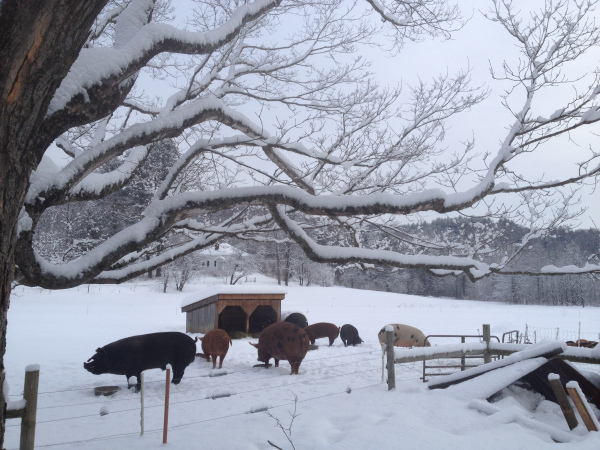

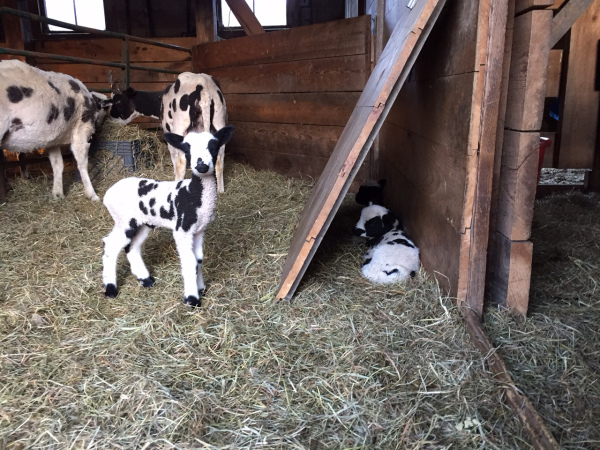
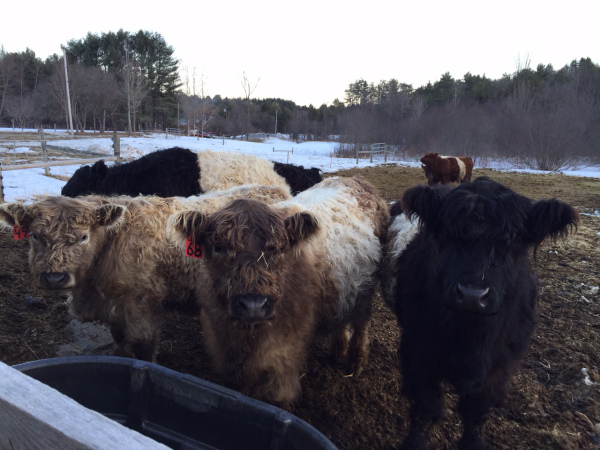
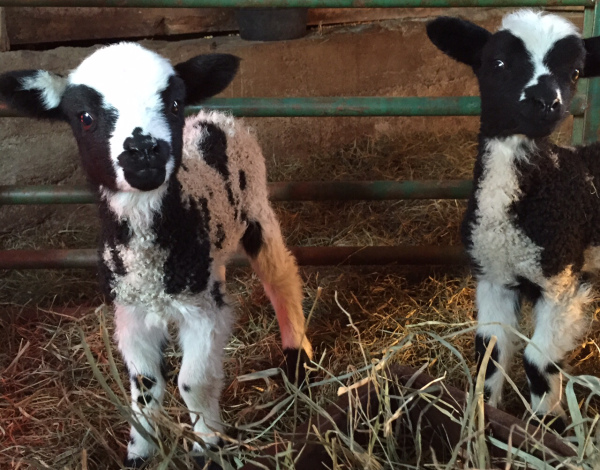
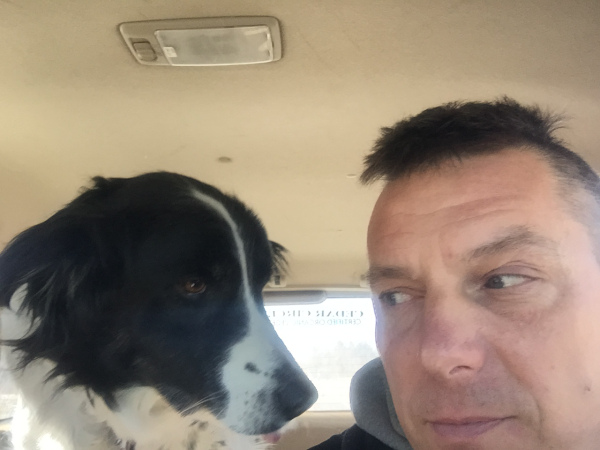
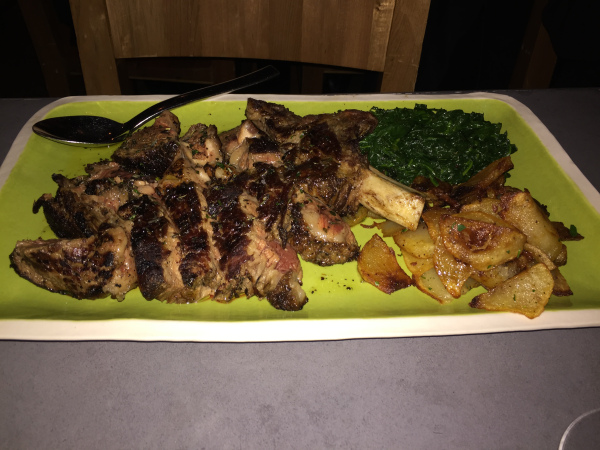
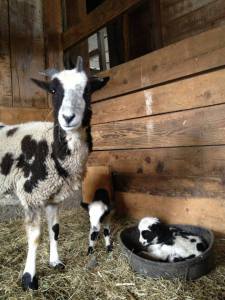
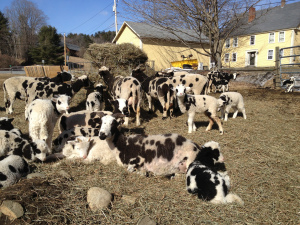
 RSS Feed
RSS Feed